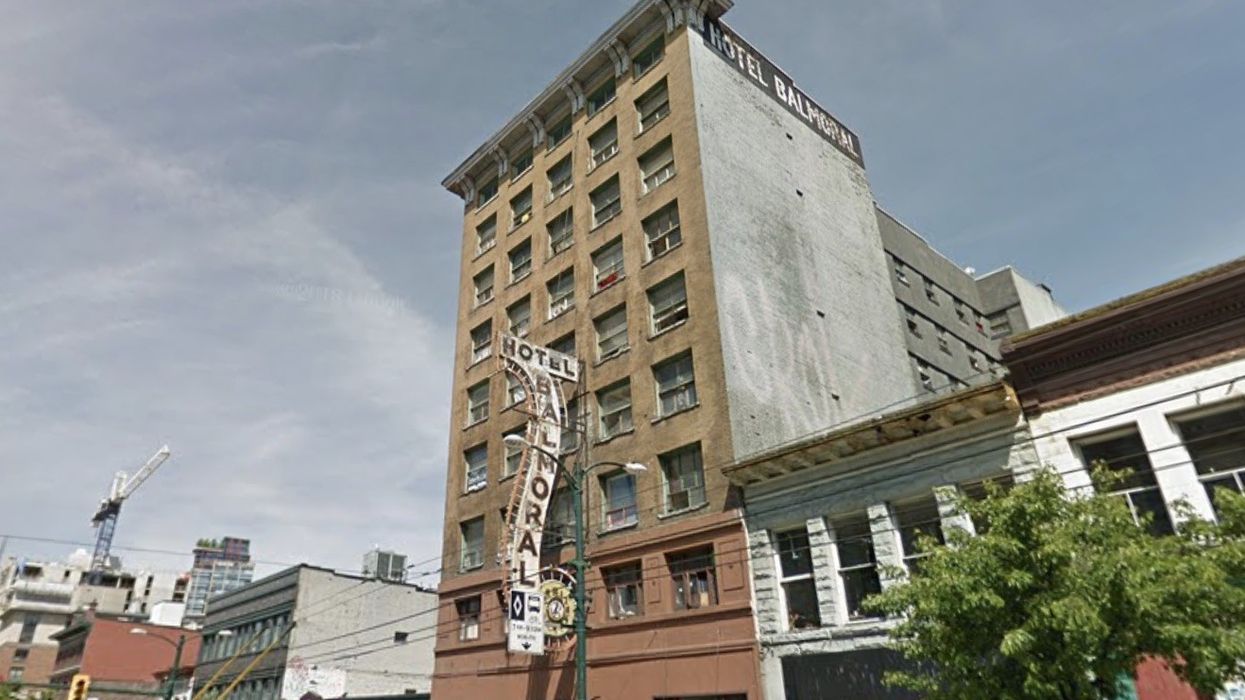Mayor of Vancouver Kennedy Stewart says the City will appeal a BC Supreme Court decision to strike down a bylaw that limits rent increases in Single Room Accommodation (SRA) buildings.
SRA buildings are residential buildings that consist primarily of small units for one person, usually not too much larger than 100 sq. ft. According to the City of Vancouver, most SRAs are privately-owned and operated, include a bed and a hot plate, with a shared bathroom in the hall, and they're intentionally built to be the minimum quality of housing, in order to be cheap and affordable to the homeless or near-homeless.
Single Room Accommodations In Vancouver
Because SRA buildings (sometimes also referred to as SRO) are privately-owned, owners and operators are able to maximize revenue if they evict existing tenants and then raise rent prices during in the period between tenancies. The City says this strategy "has been well-documented and has created housing instability and homelessness amongst the city’s lowest-income residents."
To shield SRA buildings and their vulnerable low-income residents, the City of Vancouver implemented a bylaw called the SRA Vacancy Control Policy. That bylaw "limits rent increases in SRA-designated buildings between tenancies", "prevent[s] tenant displacement", and "slow[s] speculative investment and rapidly rising rents in SRO buildings."
That policy was passed in November 2021, but two lawsuits were separately filed in January of this year, both arguing that the City of Vancouver was exceeding its powers ("ultra vires") with the bylaw.
Both lawsuits were filed by companies that own SRA buildings in Vancouver: Pender Lodge Holdings Ltd., which owns a 30-unit building on 431 East Pender Street; and 0733603 B.C. Ltd., which owns a 60-unit building on 430 Abbott Street.
The Hearing and the Appeal
After the case was jointly heard in April, the Supreme Court of BC ruled in early August in favor of the two companies.
In the court's decision, Justice Karen F. Douglas summarized the crux of the case. "The central question posed by these joint petitions is simply stated: does the City have the legislative authority to prohibit rent increases between (as opposed to during) tenancies?"
Justice Douglas noted that City of Vancouver argues that it does indeed have such legislative authority, but that she believed that this is not true and "unreasonable."
"No matter how laudable the purpose of the Impugned Bylaws [the SRA bylaws in question] might be, and whether or not they express the will of members of the community, the means to enact them must be found somewhere in the law", Douglas wrote in the decision.
Rent control is regulated by the Residential Tenancy Act (RTA), a BC provincial bylaw that regulates rent increases during tenancies, but not between them. Pender Lodge Holdings and 0733603 B.C. argued that despite the RTA not regulating the period between tenancies, the City of Vancouver cannot legislate persons who are already subject to provincial legislation, and Justice Douglas agreed with the argument, acknowledging that it is legitimate "even if it is possible to comply with both legislative schemes."
On September 1, Mayor Kennedy Stewart released a statement on Twitter announcing that the City of Vancouver would appeal the BC Supreme Court's decision.
In the statement, Mayor Stewart said that despite the city opening a record 1,600 units of social housing in 2021, the demand for SRAs was still "far outstripping supply and leading to more people being forced onto the street."
"We need to use every tool we have to protect this fragile housing stock", he said. "Our move to appeal the B.C. Supreme Court ruling is about standing up for those who are most at risk of homelessness."





















